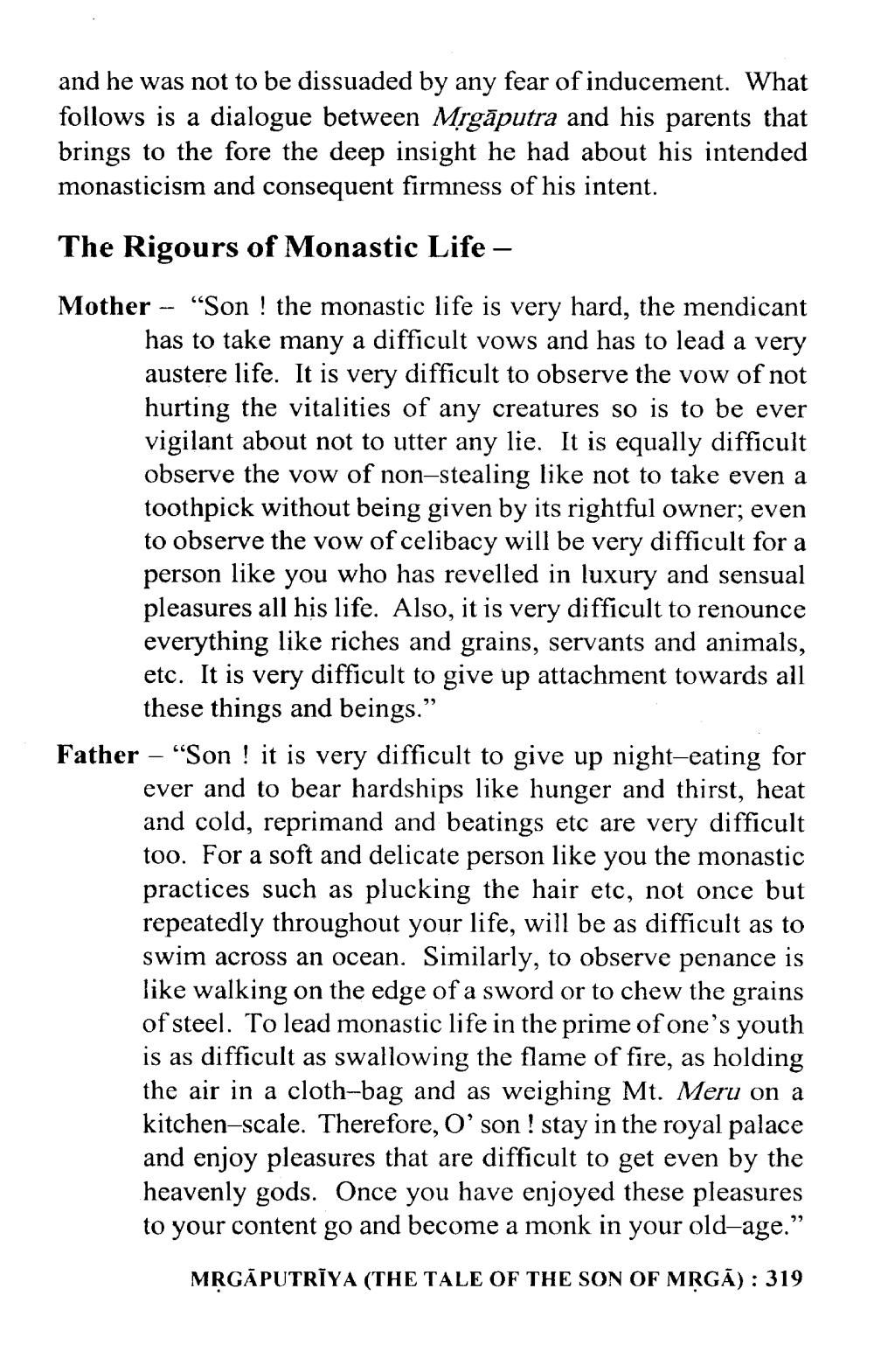________________
and he was not to be dissuaded by any fear of inducement. What follows is a dialogue between Mrgāputra and his parents that brings to the fore the deep insight he had about his intended monasticism and consequent firmness of his intent.
The Rigours of Monastic Life –
Mother -- "Son ! the monastic life is very hard, the mendicant
has to take many a difficult vows and has to lead a very austere life. It is very difficult to observe the vow of not hurting the vitalities of any creatures so is to be ever vigilant about not to utter any lie. It is equally difficult observe the vow of non-stealing like not to take even a toothpick without being given by its rightful owner; even to observe the vow of celibacy will be very difficult for a person like you who has revelled in luxury and sensual pleasures all his life. Also, it is very difficult to renounce everything like riches and grains, servants and animals, etc. It is very difficult to give up attachment towards all
these things and beings." Father – "Son ! it is very difficult to give up night-eating for
ever and to bear hardships like hunger and thirst, heat and cold, reprimand and beatings etc are very difficult too. For a soft and delicate person like you the monastic practices such as plucking the hair etc, not once but repeatedly throughout your life, will be as difficult as to swim across an ocean. Similarly, to observe penance is like walking on the edge of a sword or to chew the grains of steel. To lead monastic life in the prime of one's youth is as difficult as swallowing the flame of fire, as holding the air in a cloth-bag and as weighing Mt. Meru on a kitchen-scale. Therefore, O'son ! stay in the royal palace and enjoy pleasures that are difficult to get even by the heavenly gods. Once you have enjoyed these pleasures to your content go and become a monk in your old-age.”
MRGĀPUTRIYA (THE TALE OF THE SON OF MRGĀ): 319




